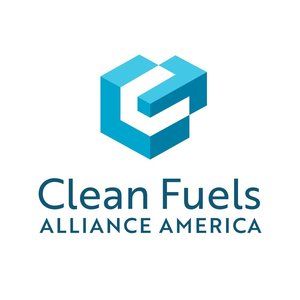Clean Fuels expresses disappointment in CARB’s LCFS proposal

August 21, 2024
BY Clean Fuels Alliance America
Clean Fuels Alliance America expressed disappointment in the California Air Resources Board’s recently proposed amendments to its Low Carbon Fuel Standard. If adopted, these changes would impose caps on credits for soy- and canola-based biodiesel and renewable diesel, without sufficient scientific evidence to support such limitations.
By restricting credit generation for these low-carbon alternatives, CARB risks unfairly disadvantaging biodiesel and renewable diesel—proven solutions that reduce emissions today while supporting sustainable farming and rural economies. Limiting biodiesel and renewable diesel in favor of technologies that will not be fully scalable for many years, even by CARB’s own projections, threatens both environmental progress and innovation.
Advertisement
Advertisement
Biodiesel and renewable diesel have significantly contributed to California’s emissions reductions. Based on data from CARB, last year more than 3 billion pounds of soybean oil and 1.7 billion pounds of canola oil were used in the state, with biomass-based diesel (BMBD) now accounting for 73% of California’s diesel pool.
“These proposed amendments impose significant restrictions on vegetable oil feedstocks, hindering the ability of clean fuels to effectively decarbonize the heavy-duty transportation sector. Moreover, they introduce stricter standards for these fuels than those applied to others, including petroleum,” said Jeff Earl, director of state governmental affairs at Clean Fuels. “These changes unjustly penalize biodiesel and renewable diesel—low-carbon fuels that provide immediate health benefits for California.”
Clean Fuels will submit comments strongly urging CARB to reconsider these amendments that threaten to reverse progress in emissions reductions and jeopardize the economic viability of renewable fuels.
Advertisement
Advertisement
“We believe that collaboration and sound science are crucial to advancing environmental goals without compromising the livelihoods of those who have committed to sustainable energy and rural communities,” said Donnell Rehagen, CEO at Clean Fuels. “Without a robust scientific foundation, these vegetable oil caps, and additional sustainability requirements threaten to undo the progress of our industry.”
The deadline for public comment is Aug. 27, 2024.
Related Stories
More than 1.76 billion renewable identification numbers (RINs) were generated under the Renewable Fuel Standard in January, down from 1.91 billion generated during the same period of 2024, according to data released by the U.S. EPA on Feb. 20.
The U.S. EPA on Feb. 20 released updated small refinery exemption (SRE) data showing that 13 previously denied SRE petitions for Renewable Fuel Standard compliance years 2021 and 2022 are being reconsidered. No new SRE petitions were filed.
A coalition of biofuel, agriculture, fuel retailer and petroleum trade groups on Feb. 19 sent a letter to U.S. EPA Administrator Lee Zeldin urging the agency to set robust, timely, multiyear RFS RVOs for 2026 and beyond.
CVR pauses development of potential SAF projects pending regulatory, tax credit clarity
CVR Energy Inc. released fourth quarter financial results on Feb. 18, reporting reduced renewable diesel production. The company also said it is pausing development of SAF capacity pending clarity on government subsidies.
CARB on Feb. 18 announced that amendments to its LCFS program that were approved in November 2024 have been put on hold following the California Office of Administrative Law’s decision to disapprove the amendments due to clarity issues.
Upcoming Events










